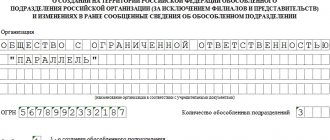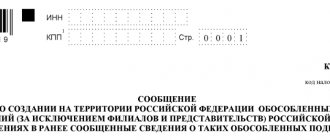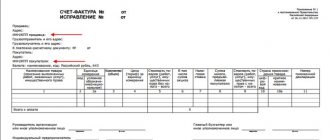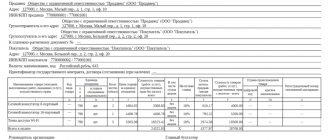Determination of the Judicial Collegium for Economic Disputes of the Supreme Court of the Russian Federation No. 303-KG17-2377 dated June 26, 2017 in case No. A04-12175/2015.
The Supreme Court of the Russian Federation came to the conclusion that an organization cannot be held liable for failure to inform the tax authority about the opening of a separate division as for failure to register with the tax authorities (Article 116 of the Tax Code of the Russian Federation). A violation expressed in failure to register a separate division is qualified as failure to provide information to the tax authority (Article 126 of the Tax Code of the Russian Federation).
Registration of a unit
An OP is registered only when financial and economic activities are carried out through it. This is done within one month from the opening of a new separate structure (clause 4 of article 83 of the Tax Code of the Russian Federation). If there is no activity at the time of creation of the OP, there is no need to register the branch. But the moment the parent company begins to conduct operations through the OP, it will have to be registered within the prescribed period.
IMPORTANT!
The fine for failure to inform about the opening of a separate unit is up to 40,000 rubles.
If you don't report the opening
In addition to registration, the parent organization is obliged to notify the territorial tax service office about the opening of a separate division. This must be done in any case, regardless of whether the activity is carried out through the OP or not. Violation of deadlines and failure to comply with the rule on mandatory notification entails penalties.
Here is a table of all possible fines for failure to report discovery. What penalty will be imposed on the parent company depends on the decision of the inspectors of the Federal Tax Service.
| Amount of fine | Norm | Base |
| 10,000.00 rubles | Clause 1 Art. 116 Tax Code of the Russian Federation | Violation of the deadline for filing an application for registration with the Federal Tax Inspectorate |
| 10% of income received during the entire period of activity of the OP, but not less than 40,000.00 rubles | Clause 2 Art. 116 Tax Code of the Russian Federation | Conducting activities by an organization or individual entrepreneur without registration with the Federal Tax Service |
| 5000.00 rubles | Clause 1 Art. 129.1 Tax Code of the Russian Federation | Late reporting of mandatory information to the Federal Tax Service |
| 200 rubles | Clause 1 Art. 126 Tax Code of the Russian Federation | Failure to submit required documents to the Federal Tax Service within the prescribed period |
For failure to provide information about the opening of an OP, a fine is imposed under clause 1 of Art. 126 of the Tax Code of the Russian Federation in the amount of 200 rubles. But there are cases when controllers took a different position and determined the maximum fine in the amount of 10% of revenues lost to the regional budget. The logic is simple: a branch has opened, activities are carried out in a specific region, but taxes do not go to the regional budget, since the OP was not registered with the territorial department of the Federal Tax Inspectorate.
Creation of a separate division
The creation of a separate division gives rise to a number of consequences for the taxpayer, directly provided for by the legislation of the Russian Federation - registration with the tax authorities, as well as the calculation and payment of taxes and fees not only at the location of the organization, but also at the location of the separate divisions (Article 19 of the Tax Code of the Russian Federation ).
The obligation to notify the tax authority of the creation of a separate division is provided for in paragraph 2 of Article 23 of the Tax Code of the Russian Federation, and the obligation to register the taxpayer with the tax authorities at the location of the separate division is provided for in paragraphs 1 and 4 of Article 83 of the Tax Code of the Russian Federation. For failure to comply with the above requirements, Article 116 of the Tax Code of the Russian Federation and 15.3 of the Code of Administrative Offenses of the Russian Federation provide for tax and administrative liability (up to 10,000 rubles and up to 30 minimum wages, respectively). It is necessary to take into account that if the taxpayer is already registered with a tax authority, then there is no obligation to register with the same tax authority, but on a different basis (including in the case of creating a separate division) (clause 39 of the resolution of the Plenum of the Supreme Arbitration Court Russia dated February 28, 2001 No. 5 “On some issues of application of part one of the Tax Code of the Russian Federation”).
The deadlines for filing an application for tax registration at the location of a separate division are given in both Article 23 and Article 83 of the Tax Code of the Russian Federation:
- in accordance with paragraph 2 of Article 23 of the Tax Code of the Russian Federation - within one month from the date of their creation, reorganization or liquidation;
- in accordance with paragraph 4 of Article 83 of the Tax Code of the Russian Federation - within one month after the creation of a separate division (it is necessary to note that this norm of the Tax Code of the Russian Federation connects the obligation to submit an application for tax registration at the location of the separate division with the fact that the organization carries out activities through the specified separate division).
In accordance with Article 9 of the Tax Code of the Russian Federation, when applying the provisions of the Tax Code of the Russian Federation, tax authorities mean the Ministry of the Russian Federation for Taxes and Duties and its divisions in the Russian Federation. Since the legislator, when deciding on the issue of tax registration of a taxpayer when creating a separate division, focuses on the place of its formation, we can conclude that the taxpayer must submit the corresponding application to the tax authority in compliance with the territorial jurisdiction, without taking into account the specifics of the registration of individual groups of taxpayers in specialized tax authorities (industrial or subject-specific tax authorities - construction, motor transport, banking, etc.). This conclusion is also confirmed by the fact that the need to register with the tax authorities at the place of creation of separate divisions is due to the provisions of the Tax Code of the Russian Federation, which provide for the obligation to distribute the tax obligations of the taxpayer, including at the location of these separate divisions. Since part of the taxpayer’s tax obligations is subject to distribution to the budgets of other territories, it is logical to assume a mechanism in which the payment of taxes attributable to these territories would be controlled by the territorial authorities at the location of the separate unit. At the same time, one cannot fail to recognize the validity of the arguments that a separate division within the framework of tax legal relations should be understood as such a division that leads to the emergence of the taxpayer's obligation to pay taxes to various budgets of the constituent entities of the Russian Federation or municipalities. Otherwise, the isolation of such a unit leads only to territorial isolation, without in any way affecting the amount of the taxpayer’s tax obligations. However, such an argument, despite all its logic, was not assessed by the courts.
Stationary workplaces
A necessary sign of creating a separate unit is the presence of stationary jobs, that is, created for a period of at least one month. In accordance with Article 209 of the Labor Code of the Russian Federation, a workplace is understood as a place where an employee must be or where he needs to arrive in connection with his work and which is directly or indirectly under the control of the employer. Both labor and civil law contracts can be concluded between an organization and an individual, which significantly affects the establishment of the existence of jobs. Since the concept of a workplace is an element of the labor relations system (regulated by the Labor Code of the Russian Federation), it should be recognized that jobs, in principle, can only arise if an employment contract has been concluded with an individual. The conclusion of any other contracts, including the performance of work or the provision of services, cannot lead to the creation of jobs and, consequently, to the formation of a separate division. This approach was fully supported by the Federal Arbitration Court of the Far Eastern District when it issued a resolution dated February 14, 2001 No. F03-A59/01-2/96. In relation to the issue of the number of stationary workplaces, it is necessary to draw the attention of taxpayers to certain arbitration cases, the resolution of which was not in favor of the latter - the court stated the possibility of creating a separate division even if there is one stationary workplace (Resolution of the Federal Antimonopoly Service of the Moscow Region dated January 23, 2003 No. KA-A41 /9052-02, resolution of the Federal Antimonopoly Service VSO dated 01/09/2001 No. A33-8564/00-S3-F02-2926/00-S1).
Thus, it can be stated that the taxpayer’s obligations arising from the fact of the formation of a separate division arise from the moment of setting up stationary workplaces controlled by the employer, provided that activities are carried out through the specified separate division.
This position has been confirmed in many judicial acts.
|
If you do not report the closure of a separate division
The closure of the OP is reported within three days from the moment such a decision is made (clause 3.1, clause 2, article 23 of the Tax Code of the Russian Federation). If this is not done, the parent company will receive a fine for failure to report the closure of a separate division. There is a special form No. S-09-3-2 for notifying the territorial Federal Tax Service. If you do not send a message within three days, the organization will be fined 200 rubles under clause 1 of Art. 126 of the Tax Code of the Russian Federation. The manager will receive a fine of 300 to 500 rubles.
In addition to the S-09-3-2 form, a notification must be submitted in form R 13002. If you do not submit it on time, the fine will be 5,000.00 rubles (clause 1 of Article 129.1 of the Tax Code of the Russian Federation).
A separate division, branch or representative office?
The concept of a separate division must be clearly distinguished from the civil law concepts of “branch” and “representative office”, which are similar in content. The latter, in accordance with Article 55 of the Civil Code of the Russian Federation, includes a separate division of a legal entity, located outside its location, which represents the interests of the legal entity and protects them (representative office) or carries out all or part of its functions, including the functions of the representative office (branch) . By virtue of the direct instructions of the Civil Code of the Russian Federation, representative offices and branches must be indicated in the constituent documents of the legal entity that created them. In the absence of such an indication, a representative office or branch cannot be considered created.
This problem, in particular, manifested itself when applying the provisions of Chapter 26.2 of the Tax Code of the Russian Federation “Simplified taxation system”. In accordance with subparagraph 1 of paragraph 3 of Article 346.12 of the Tax Code of the Russian Federation, organizations that have branches and (or) representative offices do not have the right to apply the simplified system. It was precisely this formulation that in some cases became the reason for preventing taxpayers from applying the simplified tax system.
Arbitrage practice
Parent organizations go to court regarding the amount of the fine and the amount of punishment. There are several solutions regarding penalties for failure to report the opening of a separate structure:
- In accordance with Articles 23, 83 and 84 of the Tax Code of the Russian Federation, organizations are required to notify the Federal Tax Service only about the creation of a separate division, but not about the actions of the enterprise to register an enterprise. The violator is fined under Art. 126 of the Tax Code of the Russian Federation (Resolution of the AS UO No. F09-7309/15 dated October 19, 2015 in case No. A76-2261/2015, Resolution of the AS UO No. F09-10484/15 dated December 28, 2015 in case No. A60-4800/2015).
- Some judges impose penalties for late informing the tax authorities about the opening or closing of separate departments under paragraph 1 of Art. 129.1 of the Tax Code of the Russian Federation (Resolution of the AS MO No. F05-11191/14 dated October 30, 2014 in case No. A40-130227/2013).
- In some cases, tax authorities and arbitration judges determine capital punishment under paragraph 1 of Art. 116 of the Tax Code of the Russian Federation. The basis is the conduct of activities without registration with the Federal Tax Service at the location of a separate structure (Resolution of the AS ZSO No. F04-5897/2016 dated January 27, 2017 in case No. A70-2645/2016).
The Supreme Court of the Russian Federation has a clear position on this issue. The Tax Code of the Russian Federation has established an obligation for taxpayers to report to the Federal Tax Service the existence of special structures within a specified period. A violation is the failure to provide documents to the territorial tax authority, which means that violators should be fined under clause 1 of Art. 126 of the Tax Code of the Russian Federation (Determination of the Supreme Court of the Russian Federation No. 303-KG17-2377 dated June 26, 2017 in case No. A04-12175/2015). This decision is the basis for similar cases and resulting verdicts.
Location of the organization and its divisions
In accordance with the provisions of the Tax Code of the Russian Federation, the concept of the location of an organization is not disclosed, as a result of which, taking into account the norms of Article 11 of the Tax Code of the Russian Federation, the conceptual apparatus of civil legislation can be fully used. In accordance with paragraph 2 of Article 54 of the Civil Code of the Russian Federation, the location of a legal entity is determined by the place of its state registration. State registration of a legal entity is carried out at the location of its permanent executive body, and in the absence of one - another body or person entitled to act on behalf of the legal entity without a power of attorney. Since the relevant norms of the Civil Code of the Russian Federation, as well as the Resolution of the Plenum of the Armed Forces of Russia and the Plenum of the Supreme Arbitration Court of Russia dated 01.07.1996 No. 6/8 “On some issues related to the application of part one of the Civil Code of the Russian Federation” use a reference norm to the provisions of the legislative act regulating issues of state registration of legal entities, let us turn to the text of the latter. Based on the meaning of subparagraph “c” of paragraph 1 of Article 5 of the Federal Law of 08.08.2001 No. 129-FZ “On State Registration of Legal Entities and Individual Entrepreneurs”, the location of the permanent executive body of a legal entity is its address. Additional information regarding the concept of “address” is contained in subparagraph “d” of paragraph 2 of the same article, in which the address is understood as a set of details that determine the location of an object in space:
- name of the subject of the Russian Federation;
- name of the district, city, other populated area;
- street name;
- house and apartment number.
Thus, the creation of a separate division as a legal fact can be stated when the latter (that is, stationary workplaces) is created at a different address than the state registration address (and, therefore, location) of the organization.









